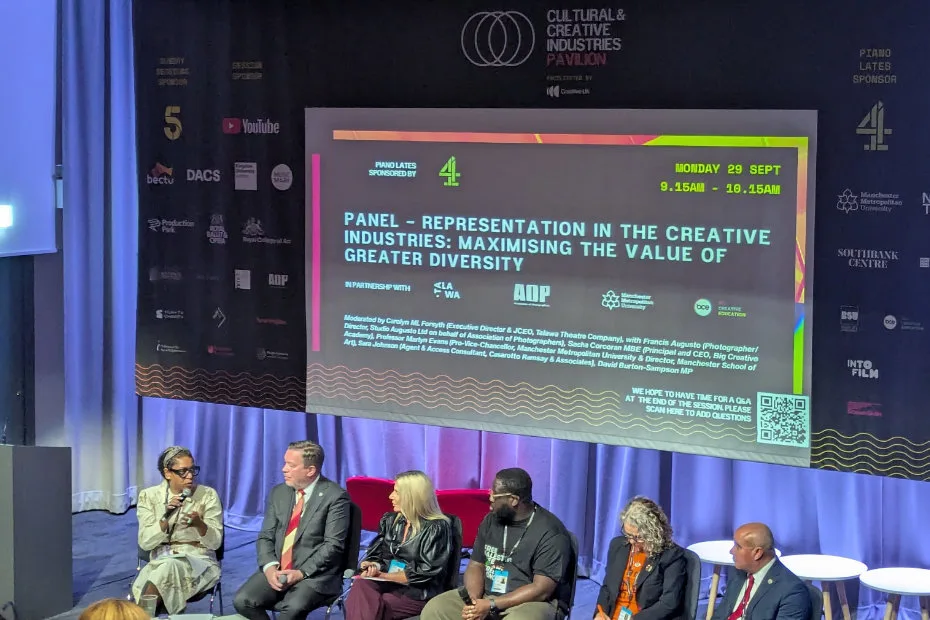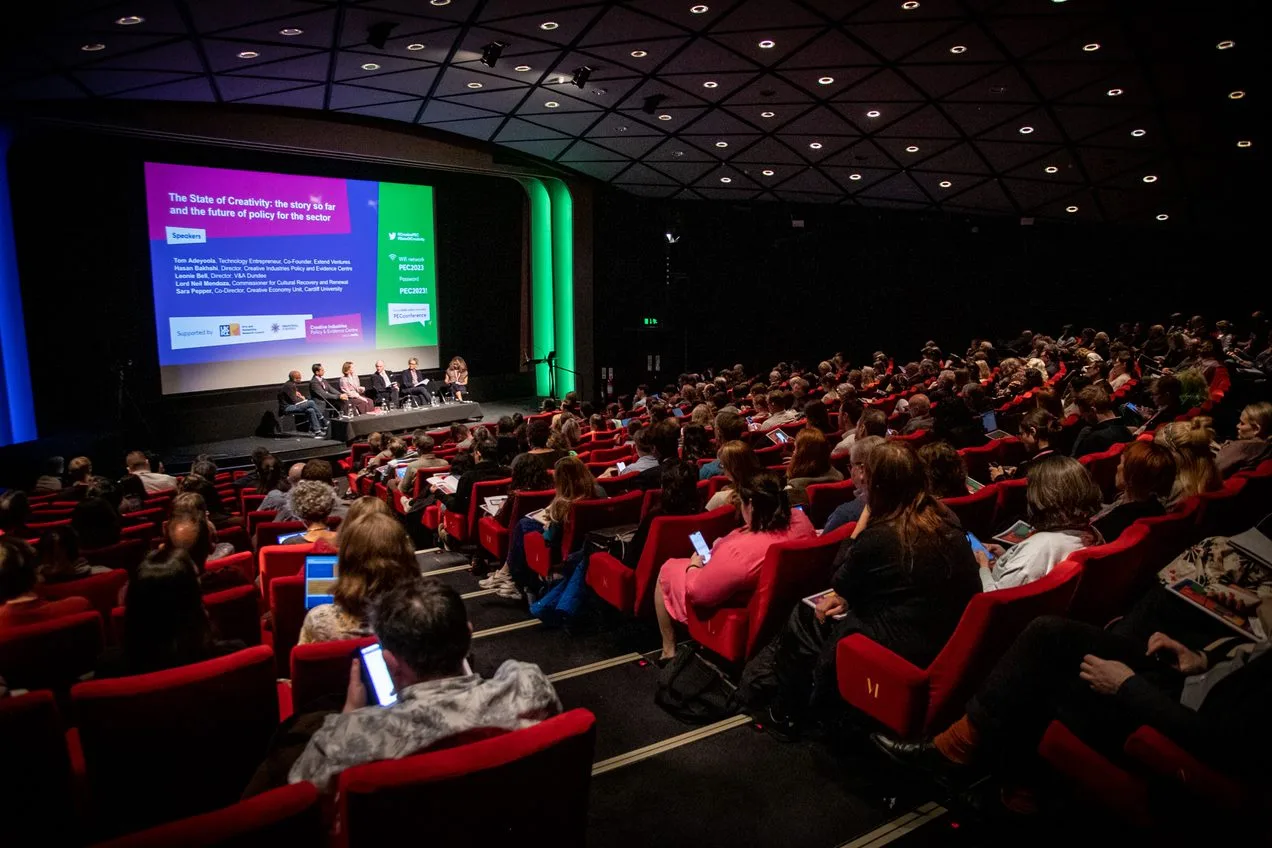The summer and autumn of 2021 has been busy for those researching the impacts of the pandemic on the creative and cultural sector in the UK.
Two major reports have been released – the first, From catastrophe to hybridity to recovery?, was released in mid-June by Bristol and Bath Creative R&D while the second, Creative Radar 2021, was published in July by the PEC.
Both reports were based on analyses of surveys of creative and cultural organisations across the UK. A sample of 270 creative and cultural organisations were analysed for the first study, and a sample of 417 creative businesses for the second. The reports investigated and analysed questions around business activities, staffing, barriers, investment in new areas, and other business changes due to COVID-19.
The findings point in the same general direction: a need for investment into research and development ( R&D) so that the creative and cultural industries can endure the challenges forced upon them as a result of the pandemic.
We have all seen and felt the impact that COVID-19, and subsequent mitigating policies has had on the creative and cultural sector in the UK. The projected impact of the pandemic in 2020 at the height of the first and second waves painted a bleak picture for the sector, as it did for most sectors across the economy. Interestingly, relatively few creative and cultural sector organisations appear to have permanently ceased operations in the immediate aftermath of the pandemic, thanks in part due to government schemes like the Coronavirus Job Retention Scheme (furlough scheme) and Arts Council England’s Culture Recovery Fund.
On the other hand, these schemes did not mitigate against job losses and reduced work for freelancers, specifically those associated with music and the performing artsor what can be termed ‘non-digital’ sectors. Those whose creative and cultural offers were purely non-digital, and employed workers connected to non-digital sectors (like Theatre and Music performance), also fared badly.
However, both studies also showed that many organisations thrived during pandemic. This could be due to their digital or hybrid (a mix of both digital and non-digital) products, services or offers. For example, the Bristol and Bath Creative R&D study showed that a number of organisations were able to ‘pivot’ their products or services in order to protect themselves against the negative effects of the pandemic. In this case most of these ‘pivots’ were from non-digital to hybrid or hybrid to digital.
While the Creative Radar report shows that pivoting occurred, the extent to which this meant a radical shift in a business’ offer was not apparent. This was partly due to the study not actively looking for such shifts. However, this might have also been because a number of respondents were already working with digital products, services or had digital income models, therefore meaning that pivoting was not a radical shift in how they approached their market base. Whereas for more non-digital sectors moving to digital would be a monumental shift – both organisationally and culturally.
What both studies do show regarding pivoting is that, firstly, the sector, as expected, is responsive, adaptable and agile. Secondly, in order to be responsive, adaptable and agile, the sector needs funding and the space to test products and services.
The latter is nothing new in other more traditional sectors. R&D funding exists for most major sectors of the economy such as agriculture, oil and gas and the like. While it does exist for the digital creative sector, much more is needed for the creative and cultural sector as a whole, especially now. One of the problems here is that the definition of R&D used by the Treasury does not include some activities common in the creative industries (e.g. arts and humanities or social sciences innovation). To solve this problem, the PEC has called for the Treasury to revise their R&D definitions. The Bristol and Bath Creative R&D and Creative Radar 2021 studies both show that there is a considerable appetite for research and development funding. In most case studies highlighted by the Bristol and Bath study, R&D funding was an absolutely critical stage in order to ensure the survival of mainly non-digital businesses, for example those in the events or festivals sector.
The importance of R&D funding shows us that the creative and cultural sector in the UK is at a turning point, which is linked to changing patterns of consumption due to the pandemic.
The Creative Radar report shows that it is younger businesses that are the ones making significant shifts and using R&D funding, while the Bristol and Bath report shows that younger businesses have a higher likelihood of survival. This suggests that younger creative and cultural organisations have already positioned themselves for the market of a post-pandemic world.
They now need better targeted R&D funding to make sure that they can successfully pivot towards the digital and hybrid business models that will give them the resilience and flexibility to thrive in the future.
Tarek is Associate Professor of Creative Industries at the Faculty of Arts, Creative Industries and Education. He is working on a number of large research projects examining creative industries clusters in the south-west of England and beyond.
The PEC’s blog provides a platform for independent, evidence-based views. All blogs are published to further debate, and may be polemical. The views expressed are solely those of the author(s) and do not necessarily represent views of the PEC or its partner organisations.
Thumbnail image by Quaid Lagan on Unsplash and hero image by Vienna Reyes on Unsplash
Related Blogs
10 facts about Creative Industries growth potential
Discover ten key findings from the report 'High-Growth Potential Firms in the UK's Creative Industri…
Why London is investing in Creative Enterprise Zones
London Mayor Sir Sadiq Khan announces £2.2 million in new funding for Creative Enterprise Zones.
Research resources on Creative Clusters
We’ve collated recent Creative PEC reports to help with the preparation of your Creative Cluster bid…
What UK Job Postings Reveal About the Changing Demand for Creativity Skills in the Age of Generative AI
The emergence of AI promises faster economic growth, but also raises concerns about labour market di…
Creative PEC’s digest of the 2025 Autumn Budget
Creative PEC's Policy Unit digests the Government’s 2025 Budget and its impact on the UK’s creative …
Why do freelancers fall through the gaps?
Why are freelancers in the Performing Arts consistently overlooked, unseen, and unheard?
Insights from the Labour Party Conference 2025
Creative PEC Policy Adviser Emily Hopkins attended the Labour Party Conference in September 2025.
Association of South-East Asian Nations’ long-term view of the creative economy
John Newbigin examines the ASEAN approach to sustainability and the creative economy.
Culture, community resilience and climate change: becoming custodians of our planet
Reflecting on the relationship between climate change, cultural expressions and island states.
Cultural Industries at the Crossroads of Tourism and Development in the Maldives
Eduardo Saravia explores the significant opportunities – and risks – of relying on tourism.
When Data Hurts: What the Arts Can Learn from the BLS Firing
Douglas Noonan and Joanna Woronkowicz discuss the dangers of dismissing or discarding data that does…












